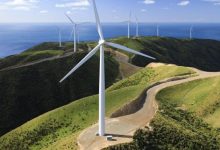At the end of a week of big climate and renewables announcements from its Pacific neighbours, the New Zealand government has set a target of 50% renewables for total final energy consumption by 2035.
The target was confirmed alongside the publication, on Friday, of the terms of reference for the New Zealand Energy Strategy, which maps out the ambitions and next steps for shifting to a “high performing, low emissions” future.
The 2035 target addresses the renewables share of total energy consumed by end users, not just electricity.
According to the documents detailing the government’s emissions reduction task, just over 40 per cent of NZ’s total primary energy supply and nearly 28 per cent of its total final energy consumption comes from renewable energy sources.
The new target sits alongside the Labor government’s aspirational target of 100 per cent renewables electricity by 2030, and its series of three “stepping stone” emissions budgets on the path to a net zero carbon target for 2050.
To underpin these targets, the government aims to have a national Energy Strategy in place by 2024, and is this week seeking feedback on key issues, such as how to fast-track the rollout of renewables, adapt the grid, and phase-out fossil fuels in energy, transport, and industry.
Tying together work already underway
One of the key actions already being undertake to boost the contribution of renewables is the establishment of a regulatory framework for offshore renewables, namely offshore wind – on of the few areas in which NZ lags just a little behind Australia.
As is the case in Australia, there is no shortage of interest from offshore wind energy developers in the waters surrounding Aotearoa, with many projects already lining up to get cracking once the regulatory framework is established.
Also on the list of works in progress are a hydrogen roadmap, gas transition plan, NZ Emission Trading Scheme settings and a framework for hard to abate sectors.
“The New Zealand Energy Strategy will tie together the comprehensive program of work already underway,” said NZ minister of energy and resources, Megan Woods, in a statement on Friday.
“Today is about building on this multi-step plan with the Terms of Reference outlining further detail to explain the strategic direction of our move away from polluting and expensive fossil fuels, and preparing us for a renewable future.
“Thanks to our strong economic management and our readiness to do things differently we are well positioned to slash our energy emissions and create a sustainable energy system for generations to come,” Woods said.
“We must keep our economy secure against what the global downturn and climate change may throw at us.”
An all-of-energy-sector approach
In a separate statement, the BusinessNZ Energy Council welcomed the publication of the terms of reference, and said that the industry’s voice had been heard when informing the scope of the upcoming Strategy.
“For five years now, BEC has been advocating for a strategy which takes an all-of-energy-sector approach to the issues we’re facing,” said BEC executive director Tina Schirr.
“A practical energy strategy needs a vision and objectives which seek more sustainability in the sector while also balancing affordability and security of supply. We call this the energy trilemma.
“Core principles of the Strategy need to include; A holistic approach to energy that is tech, fuel and sector agnostic, is able to stand the test of time, provides clarity, is economic, and aligns with global best practices,” Schirr said.
New Zealand’s Energy Strategy was one of the main recommendations from the Climate Change Commission’s advice Ināia tonu nei: a low emissions future for Aotearoa, and was committed to in the government’s Emissions Reduction Plan released in May.
It will be developed over the next two years, with the final strategy due in December 2024.
“Planning for future energy shocks and strengthening our economic position within a greening global economy, means we need a strong evidence-base and to chart the path for a future proofed energy system,” said Woods.
“This is not a government that sits idly by or seeks to turn back time. Today is a day for celebration as we get closer to our ambitious goals.”










